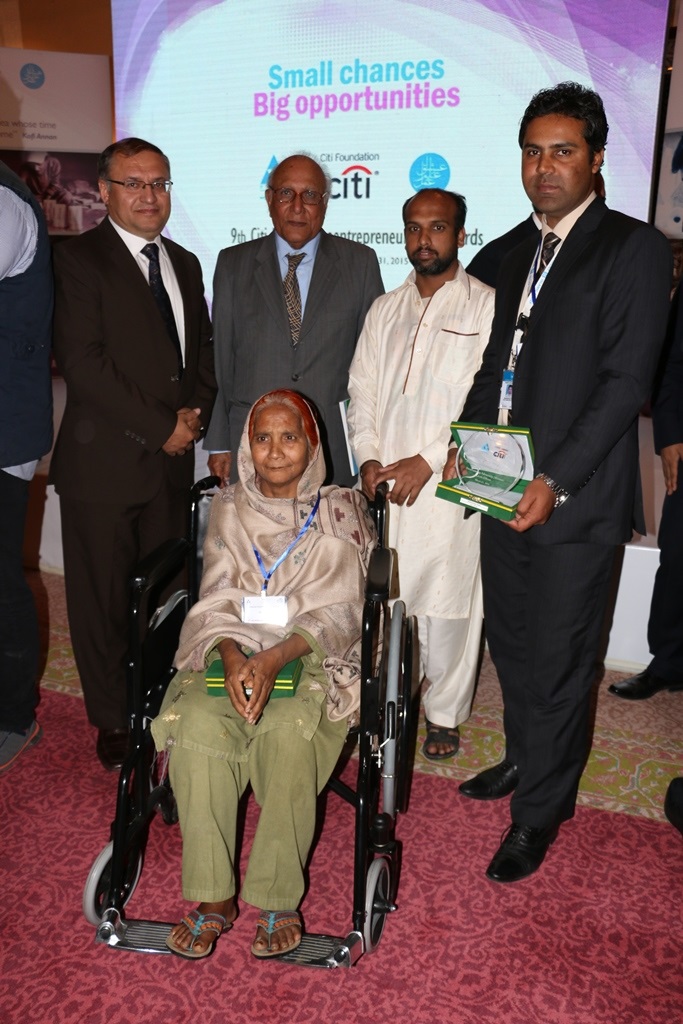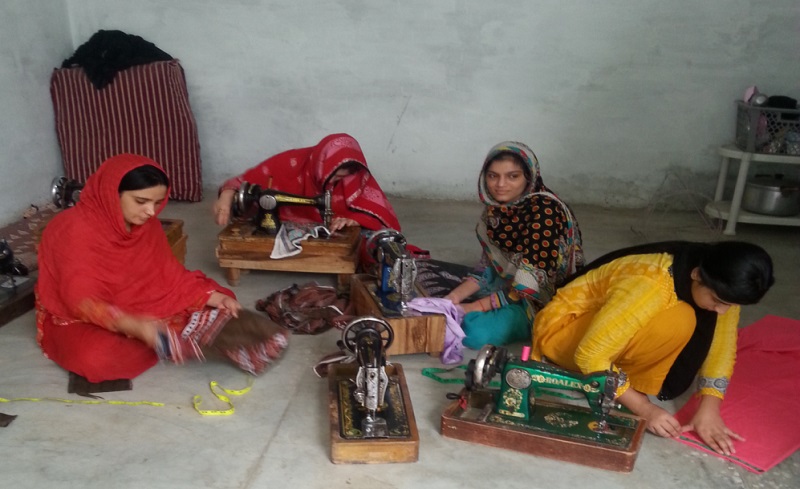Islamic Relief’s microfinance scheme has helped over 14,000 families in Pakistan to escape the poverty trap. Last month saw a fourth client scooping a prestigious entrepreneurship award, once more highlighting the success of the scheme in changing lives.
Poor people are typically excluded from access to conventional finance, as profit-making institutions regard them as high risk. Without access to finance, they struggle to build decent livelihoods. Too often, families fall prey to loan sharks and other exploitative mechanisms which drag them deeper into poverty.

However, Islamic Relief is providing interest-free loans (Qard-ul Hassan) and trade financing (Murabaha) to poor entrepreneurs to purchase specific items needed for income-generation. Through such interventions Islamic Relief can mitigate the risk of loan default, as the absence of interest makes the transaction more sustainable for the borrower and a small profit share supports the scheme so others can benefit.
In Pakistan, our microfinance scheme includes financial support, business start-up grants, and vocational and enterprise development training. More than 3,000 loans were provided last year, totalling Rs. 78 million (over GBP £521,000). Over 14,000 families have benefitted so far. Around 90 per cent of our beneficiaries are women.
Shakira and Sajida now earn a decent living
Shakira Noor was among those to access the scheme. After her husband died, she used Islamic Relief loans to set up a soft drink stall at a bazaar in Islamabad. Shakira is now providing for her five children, and her successful enterprise has also created a job for her son. She recently won recognition as an outstanding micro-entrepreneur, scooping first place at the prestigious Citi-PPAF Micro-entrepreneurship Awards – the fourth Islamic Relief microfinance client to receive such an award.

“I am excited to receive this award, and [offer] my prayers for those who continue supporting us,” she said at the awards ceremony last month.
Sajida Yameen, 30, lives with her husband, a daily-labourer, and two children in Dhok Ratta. She earned only a small income as a part-time domestic worker, and the family struggled to make ends meet.
With Islamic Relief’s support, she set up a small tailoring business which provides Sajida and her family with a decent income – and employment for six other women. She now trains other women in sewing skills and plans to move her business from the family home to the local market, to be closer to her customers.
Islamic Relief has been offering Islamic micro-finance in Pakistan since 2001, initially targeting widowed women and the guardians of orphaned children by providing small loans. A year later, we broadened the scheme to make Sharia-compliant loans available to poor people who want to set up small enterprises or improve their livelihoods.










